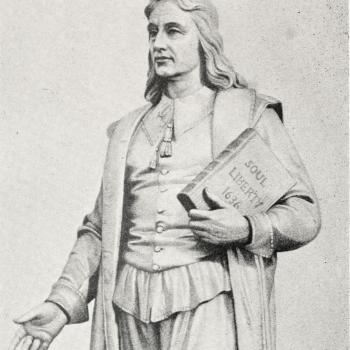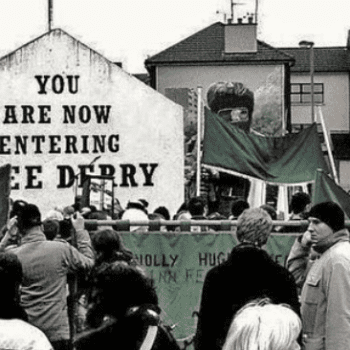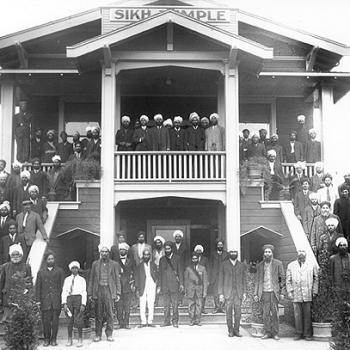Baylor recently welcomed Os Guinness, one of the seminal Christian apologists of the past half-century, for a public conversation with our president, Judge Ken Starr. Guinness spoke about his new book The Global Public Square: Religious Freedom and the Making of a World Safe for Diversity. [Video of the event is available here.] Guinness offers a compelling vision of a worldwide public arena which affords religious people of all persuasions, as well as skeptics and atheists, full liberty of conscience and free exercise of religion.
One of the most striking points Guinness makes is that we have a strong foundation on which to build such a public square, not only in America’s founding documents, but in the United Nations’ Universal Declaration of Human Rights. We tend to be so jaded about the corrupt, hypocritical U.N., that when a prominent Anglo-American evangelical praises it, one pays attention. In his book, Guinness goes so far to call the Universal Declaration of Human Rights the “greatest and most influential” such declaration in history.
The chief reason for his effusive praise lies in the Declaration’s 18th article, which offers a full-throated endorsement of religious liberty: Everyone has the right to freedom of thought, conscience and religion; this right includes freedom to change his religion or belief, and freedom, either alone or in community with others and in public or private, to manifest his religion or belief in teaching, practice, worship and observance.
This statement is definitive because it is so specific.  Religious liberty does not just entail the oft-criticized phrase “freedom of worship” that the Obama administration has often employed instead of the 1st amendment’s guarantee of “free exercise of religion.” Here religious liberty includes the freedom to convert to another religion, or to renounce religion altogether. This freedom is most obviously curtailed in the Muslim world, but also in places like China where many pay a steep political or legal price for openly professing faith.
Religious liberty does not just entail the oft-criticized phrase “freedom of worship” that the Obama administration has often employed instead of the 1st amendment’s guarantee of “free exercise of religion.” Here religious liberty includes the freedom to convert to another religion, or to renounce religion altogether. This freedom is most obviously curtailed in the Muslim world, but also in places like China where many pay a steep political or legal price for openly professing faith.
It also entails the liberty to “manifest,” or to make public, one’s religion by expressing opinion, engaging in advocacy, and yes, attending worship services. This guarantee would also presumably include the freedom from government coercion requiring people of faith to engage in practices that violate conscience (such as military service or, more controversially, providing consumer wedding or church services to gay and lesbian couples, or offering contraceptive and abortifacient coverage to employees).
The U.N. of 1948, chastened by the recent memory of the Holocaust, was a different body than today’s U.N. It is highly doubtful that the U.N. could re-affirm the Declaration now. (Consensus eludes the body on virtually every topic.) And although our government would presumably support the Declaration again, one wonders if even we remain fundamentally committed to the principles enshrined in article 18. From the phenomenally radical position that the Department of Justice took (and the Supreme Court resoundingly repudiated) in the Hosanna-Tabor case, to the troubling campaign to force conscientious dissenters to provide birth control coverage under the HHS Mandate, the status of religious liberty seems unclear even in the “land of the free.”
















